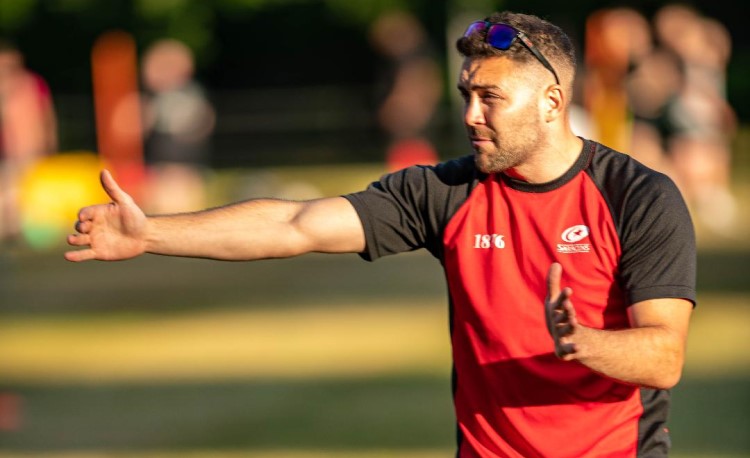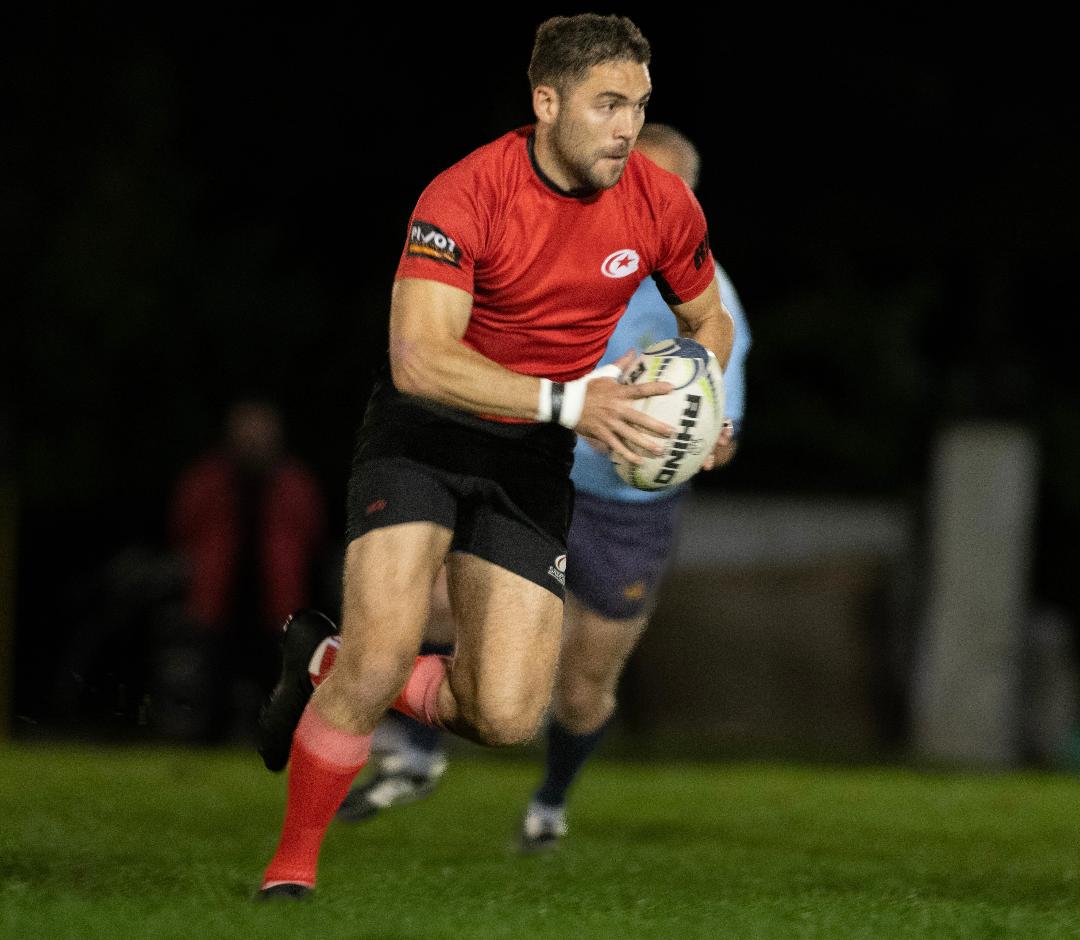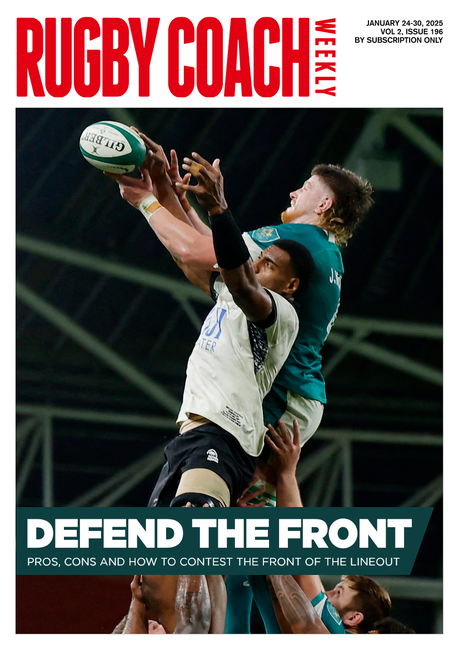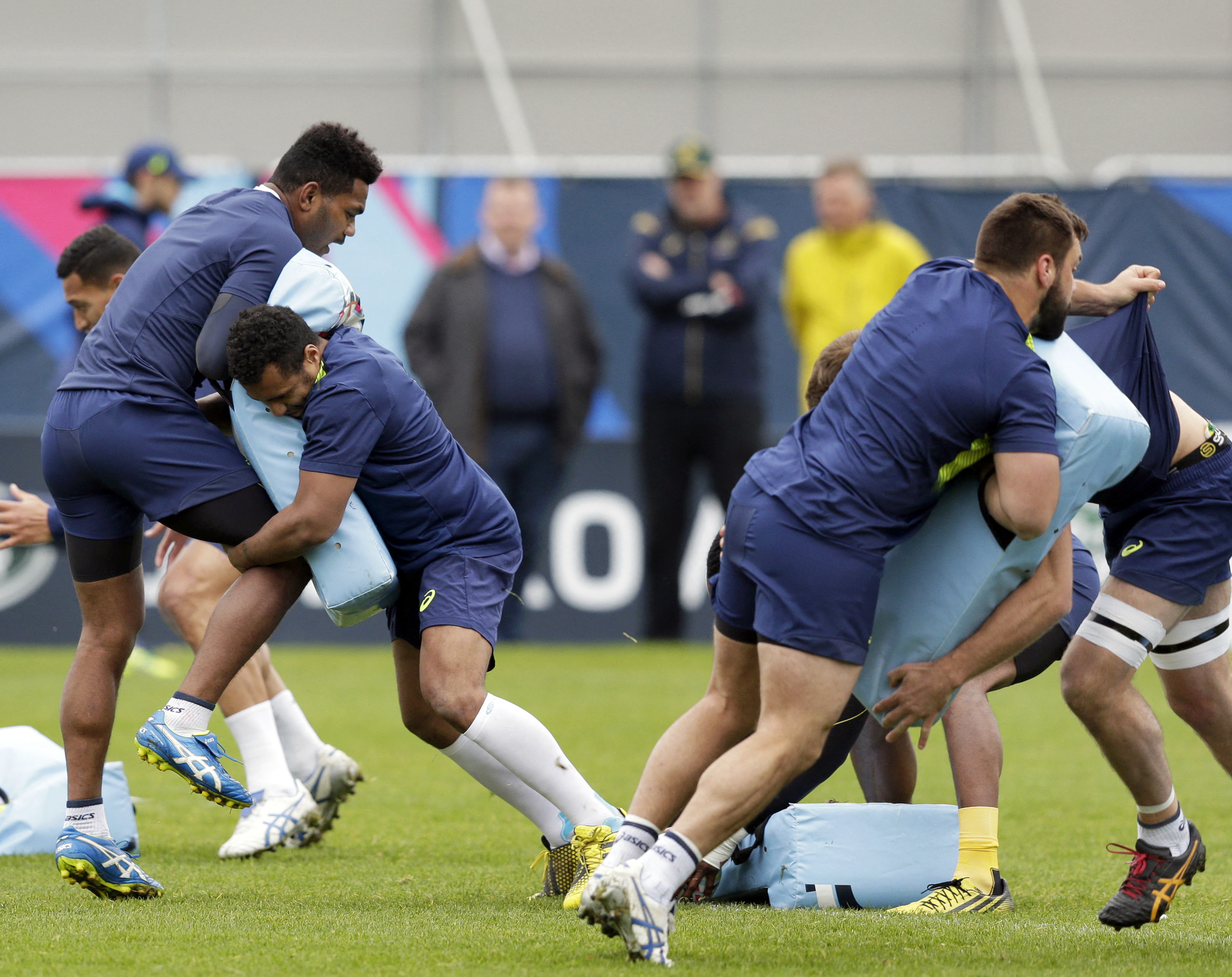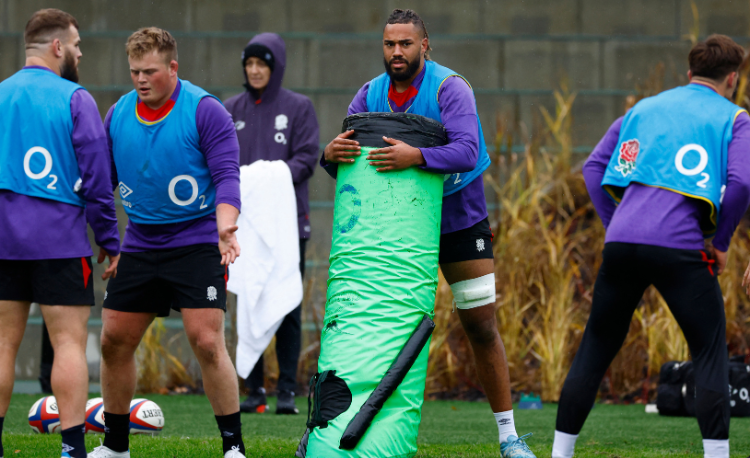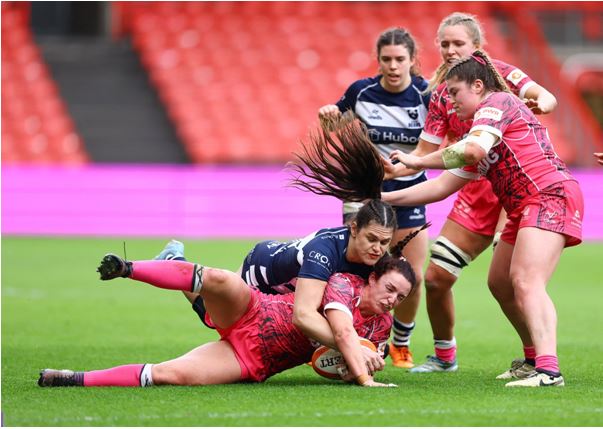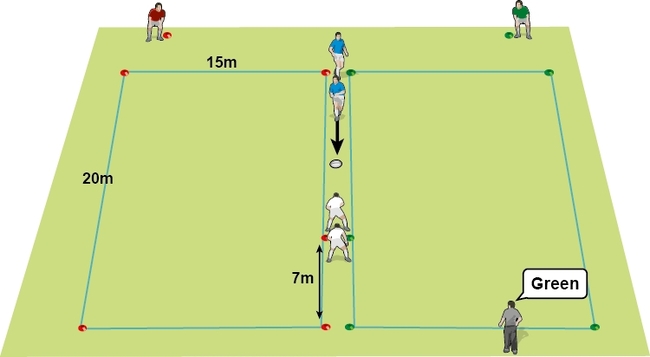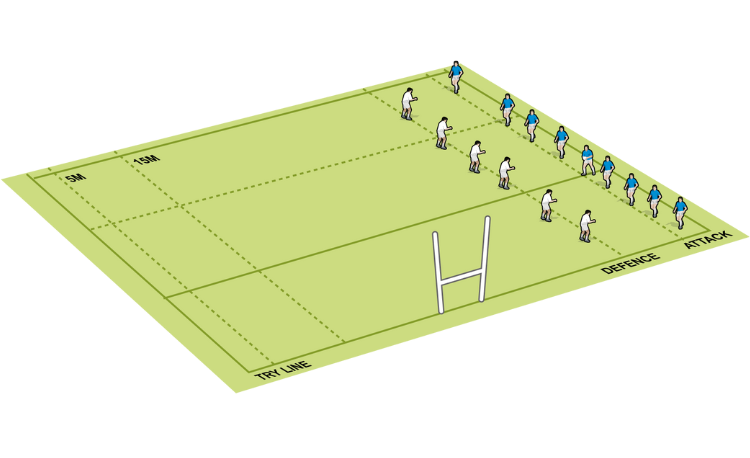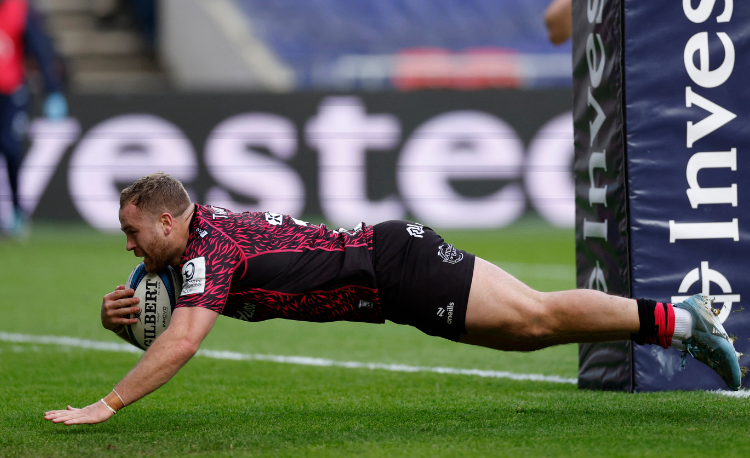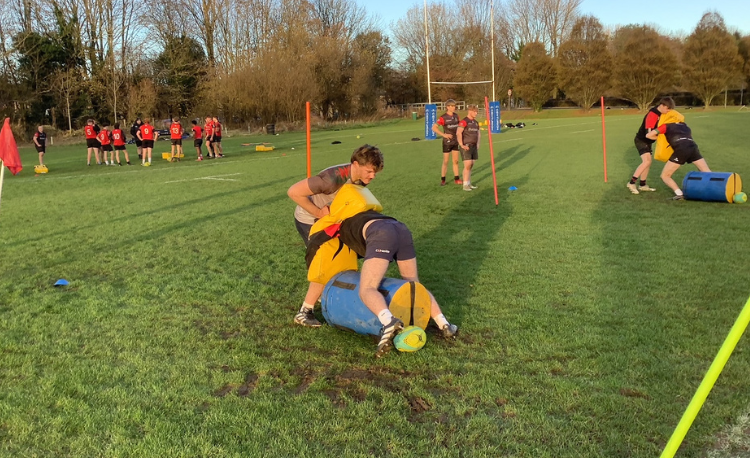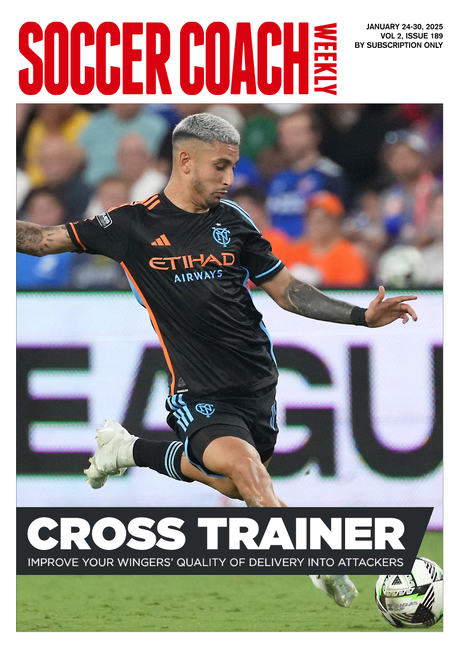Four keys to being a great player-coach
Saracens Amateur’s JACK GOLDBERG on balancing the two huge challenges.
“How do I become an effective coach?”
This was the question I asked myself when I took on the head coach position at Saracens Amateur RFC in September 2019.
With the prospect of a season on the sideline due to ACL and MCL reconstruction, I quickly found the challenges of coaching both exciting and frustrating, with the burning internal desire to get back on the pitch.
The Covid-19 pandemic further delayed a return to playing contact rugby, but as the 2021-22 season loomed, I was filled with excitement and promise as I embarked on a first season as a player-coach.
It most certainly taught me a lot...
ONE: You may not have gone to Harvard – but surround yourself with people that did
With a coaching team consisting of two player-coaches (while I also juggled the newly created director of rugby role), an assistant coach and a manager, we set out with the very clear goal to get promoted.
A one-point loss in the second game of the season created a sense of anxiety, both in myself and the squad. How could we even consider promotion when losing so early in the season to a team we didn’t consider a promotion rival?
I felt somewhat overwhelmed and knew I needed to change the way I was working. I reflected and adapted my coaching approach, session design and feedback strategy to better develop players’ ability to cope with adversity by focusing on process goals (that’s another article in itself) and began to plan for the 2022-23 season.
The success we have since experienced so far this season is no doubt a result of that one-point loss, a defeat that underpinned the creation of the coaching team that ’went’ to Harvard.
Good quality coaches are worth their weight in gold in grassroots rugby. By recruiting two new senior coaches, giving an injured player a senior coaching role, appointing a permanent head coach of the U17/18 Colts and recruiting a new senior physiotherapist, we are currently reaping the rewards of ambitious recruitment and building a coaching team that embodies authenticity, belonging and growth.
TOP TIP: Build a coaching team that will support and believe in the approach, whilst freeing you up to train and play to the best of your ability.
TWO: Control leads to compliance; autonomy leads to engagement
As I have grown up, I have always relished responsibility and that has often manifested itself in attempting to do everything myself.
It has taken time in both my coaching and teaching to relinquish control and allow those around me to support, thrive and be trusted in their areas of responsibility.
Having too much control can lead to rigidity, compliance and a lack of creativity whereas giving autonomy builds trust, ownership over roles and a significantly more efficient team. This is what allows me to be an effective player-coach: collaboration and trust in those around me.
Autonomy makes happy people. Happy people make effective coaches and players, and effective coaches and players will engage more.
In turn, increasing engagement levels lead to greater enjoyment of sessions. Players are more receptive to challenge, and are then more likely to feel a sense of flow in every session (another lengthy pedagogical discussion).
Players and coaches respond positively to this autonomous learning environment, and engagement generates buy-in to the overall culture.
Buy-in to the culture through autonomy positively translates onto the pitch as it builds resilience to adversity and problem-solving individuals who feel empowered and able to adapt their game based on different situations.
TOP TIP: Give coaches creativity and autonomy over session design while still having consistent routines for both players and coaches.
THREE: What you permit, you promote
The idea that the culture of any organisation, sports club or team can be shaped by the worst behaviour that the leader or coach is willing to tolerate has always been a strong belief of mine.
As a player-coach, the challenge is that your relationships with your players, both on and off the pitch, requires you to wear different hats. Setting clear expectations and being transparent to support and build relationships is therefore so important.
Modelling this, and thus permitting open dialogue, approachability, and authenticity, therefore, promotes a healthy club environment.
TOP TIPS:
- Set an example, on and off the pitch (even when emotions run high, often the hardest aspect, and one I continue to strive to be better at).
- Build meaningful, authentic and trusting relationships with all at the club - players, coaches, managers and support staff.
- Challenge behaviour that threatens the culture we want to promote. Your culture is only as strong as the behaviour that goes unchallenged.
FOUR: Feedback is free education. Seek it with sincerity, receive it with grace
Giving feedback is a key component of any coach’s toolkit.
"Buy-in to the culture through autonomy positively translates onto the pitch..."
However, players, especially at younger ages and grassroots levels, often fail to seek feedback with any purpose or frequency. This is a skill and attitude that can be a factor that separates elite athletes from the rest.
Additionally, player-coaches tend to play at a level they are comfortable at and, therefore can easily fall into the trap of wearing the coach’s hat above all else and neglecting their own development as a player.
Seeking feedback as a coach is familiar, safe and unharmful (for the most part) to their coaching self-efficacy, yet receiving feedback as a player can potentially be received poorly, given the role they hold and the perception that they need to be a ’model’ player at all times.
In Brené Brown’s Dare to Lead, she posits that seeking feedback when you are in a position of responsibility can create a sense of vulnerability because you are supposed to know the answers - when, in fact, seeking feedback, dropping your ‘armour’ and collaborating with others is a very powerful way to create trusting and authentic relationships with other coaches and players.
TOP TIPS:
- Take the time to internally and actively reflect on your coaching and playing, above and beyond seeking or hoping to receive positive feedback from other players and coaches.
- Be able to identify, when receiving feedback, if it triggers an initial negative response.
- Be comfortable with that vulnerability and understand that it isn’t challenging your integrity as a person but will develop you as a player-coach in the long term.
- Embrace having these honest conversations as opposed to polite and ego-conscious gestures to build trust and reciprocal feedback opportunities.
Related Files
Newsletter Sign Up
Coaches Testimonials

Gerald Kearney, Downtown Las Vegas Soccer Club

Paul Butler, Florida, USA

Rick Shields, Springboro, USA

Tony Green, Pierrefonds Titans, Quebec, Canada
Subscribe Today
Be a more effective, more successful rugby coach
In a recent survey 89% of subscribers said Rugby Coach Weekly makes them more confident, 91% said Rugby Coach Weekly makes them a more effective coach and 93% said Rugby Coach Weekly makes them more inspired.
Get Weekly Inspiration
All the latest techniques and approaches
Rugby Coach Weekly offers proven and easy to use rugby drills, coaching sessions, practice plans, small-sided games, warm-ups, training tips and advice.
We've been at the cutting edge of rugby coaching since we launched in 2005, creating resources for the grassroots youth coach, following best practice from around the world and insights from the professional game.
